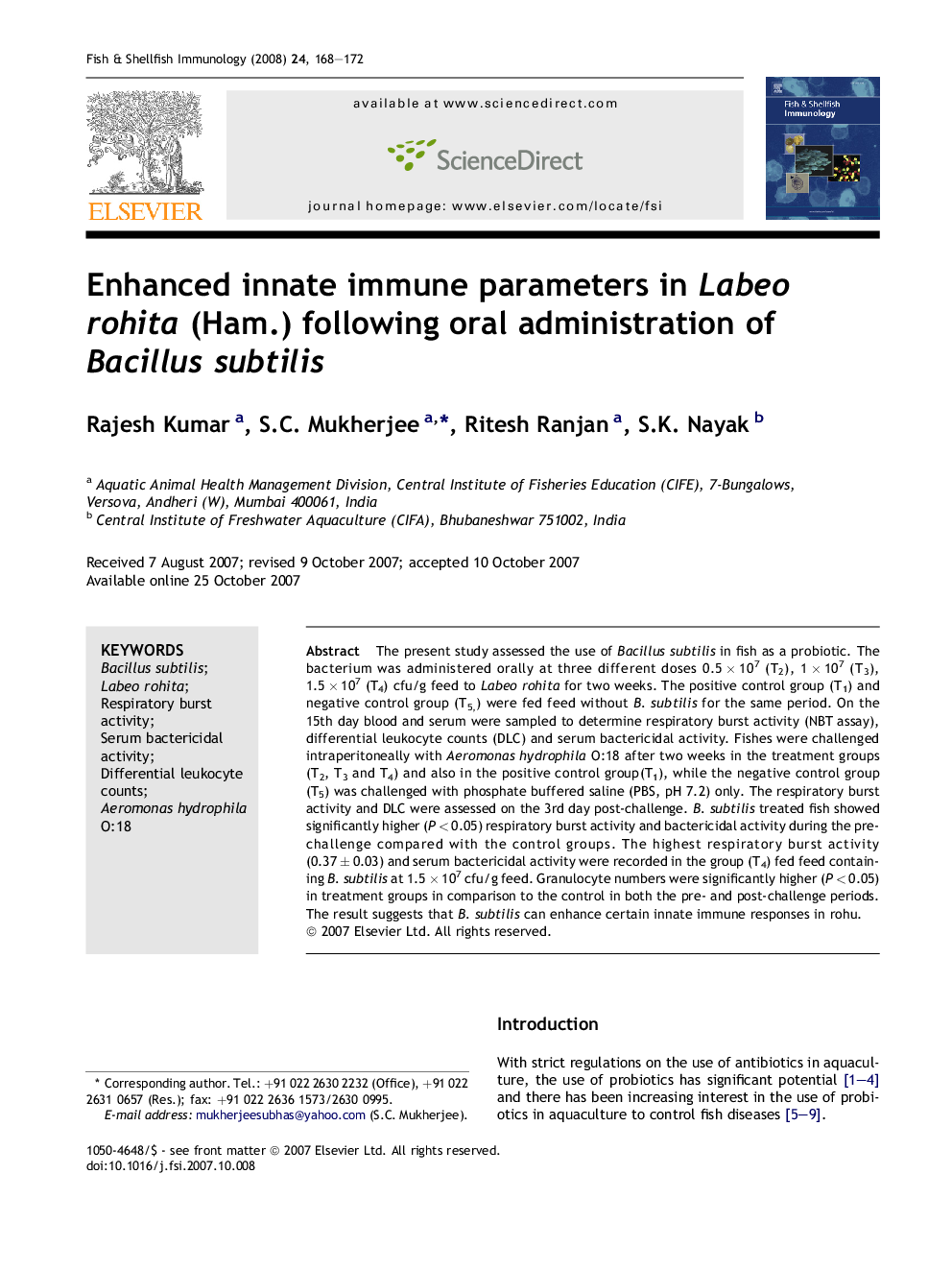| Article ID | Journal | Published Year | Pages | File Type |
|---|---|---|---|---|
| 2433408 | Fish & Shellfish Immunology | 2008 | 5 Pages |
The present study assessed the use of Bacillus subtilis in fish as a probiotic. The bacterium was administered orally at three different doses 0.5 × 107 (T2), 1 × 107 (T3), 1.5 × 107 (T4) cfu/g feed to Labeo rohita for two weeks. The positive control group (T1) and negative control group (T5,) were fed feed without B. subtilis for the same period. On the 15th day blood and serum were sampled to determine respiratory burst activity (NBT assay), differential leukocyte counts (DLC) and serum bactericidal activity. Fishes were challenged intraperitoneally with Aeromonas hydrophila O:18 after two weeks in the treatment groups (T2, T3 and T4) and also in the positive control group(T1), while the negative control group (T5) was challenged with phosphate buffered saline (PBS, pH 7.2) only. The respiratory burst activity and DLC were assessed on the 3rd day post-challenge. B. subtilis treated fish showed significantly higher (P < 0.05) respiratory burst activity and bactericidal activity during the pre-challenge compared with the control groups. The highest respiratory burst activity (0.37 ± 0.03) and serum bactericidal activity were recorded in the group (T4) fed feed containing B. subtilis at 1.5 × 107 cfu/g feed. Granulocyte numbers were significantly higher (P < 0.05) in treatment groups in comparison to the control in both the pre- and post-challenge periods. The result suggests that B. subtilis can enhance certain innate immune responses in rohu.
